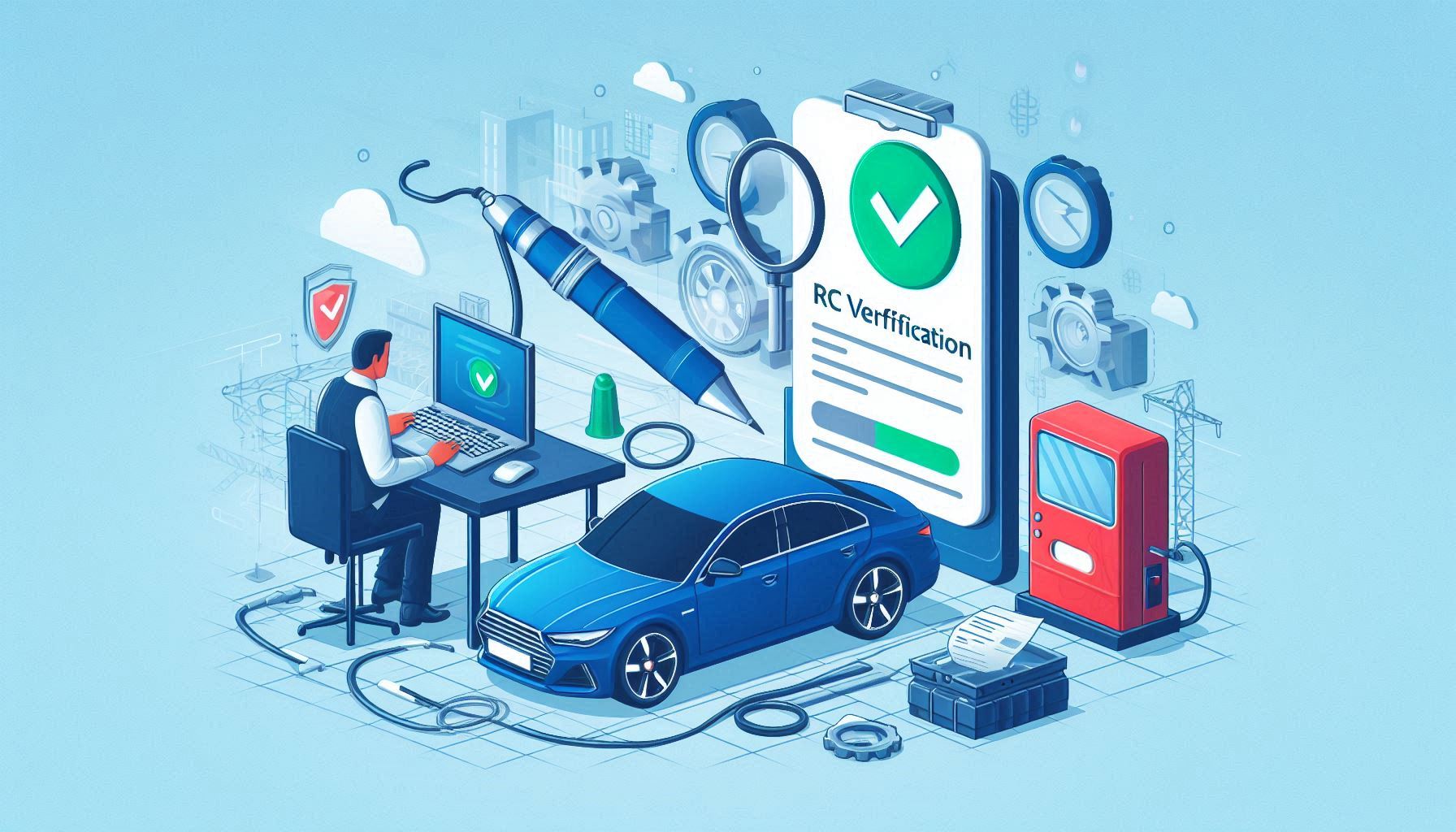
For vehicle dealerships, verifying the authenticity of a vehicle before sale is essential to avoid legal issues, enhance customer trust, and reduce fraud. Yet, the traditional process of verifying a vehicle’s RTO registration can be time-consuming, costly, and often complex. This is where the RC Verification API shines, simplifying RTO checks and helping dealerships provide a seamless and trustworthy buying experience.
In this blog, we’ll explore how the RC Verification API is transforming vehicle verification for dealerships, enabling them to quickly and accurately authenticate vehicle ownership details while minimising risks associated with fraud and unregistered vehicles.
The RC Verification API provides dealerships and other businesses with direct access to official RTO data, allowing them to confirm essential vehicle information by simply inputting a vehicle’s registration number. It retrieves:
For dealerships, this API allows instant validation of critical details to assure both the business and the buyer that the vehicle is properly registered and authentically linked to its stated owner.
Dealerships can encounter vehicles with unclear or false registration records, which may pose risks if the vehicle’s history isn’t verified. The RC Verification API allows dealerships to confirm whether a vehicle is genuinely registered and verify its true ownership, helping to avoid unauthorised sales and potential legal disputes.
Trust is essential in the vehicle-buying process. Buyers want assurance that they’re purchasing a legitimate vehicle. By integrating the RC Verification API, dealerships can showcase a commitment to transparency and security, building customer confidence in the authenticity of their vehicles.
Manual verification of vehicle details is time-consuming. For dealerships handling high volumes of vehicles, automating this process with an API saves time and resources, allowing them to focus more on sales and customer service, instead of administrative tasks.
With the RC Verification API, dealerships can instantly access up-to-date data from RTO records, ensuring accuracy and compliance. The API enables real-time verification without relying on slow manual processes, improving operational efficiency.
By validating registration, owner details, and other essential information, the RC Verification API minimises the risk of dealing with stolen or unregistered vehicles. With features like the owner’s name, RC status, and chassis number verification, dealerships are better equipped to identify and avoid fraudulent transactions.
When dealerships can verify a vehicle’s registration and insurance status on the spot, the purchase process becomes smoother and more reliable. This immediacy allows dealerships to confidently present vehicles with all the necessary verification, ensuring buyers feel secure in their purchase decision.
In regions where vehicle registration checks are mandatory, the RC Verification API ensures that dealerships remain compliant with legal requirements, avoiding potential fines or penalties associated with non-compliance.
For dealerships selling pre-owned cars and bikes, verifying the registration and ownership details of each vehicle is essential to ensure transparency with buyers. The RC Verification API helps authenticate details like the vehicle’s manufacturing year, fuel type, and owner’s name, providing the dealership with reliable data to confidently sell used vehicles.
Example: A used car dealership integrates the RC Verification API to confirm that each vehicle in their inventory is registered with an RTO and that the details match the seller’s information, building trust with customers looking for a reliable used vehicle.
Dealerships often acquire vehicles from multiple sources and need a streamlined process for verifying each vehicle’s registration. By using the RC Verification API, dealerships can immediately validate new arrivals, ensuring that only properly registered and authentic vehicles are added to their inventory.
Example: A dealership onboarding a fleet of new vehicles uses the API to verify each vehicle’s RTO registration, confirming authenticity and ensuring all models are legally compliant for sale.
Dealerships working with finance and insurance companies benefit from reliable RC verification, as finance and insurance partners often require confirmation of vehicle ownership and registration status to approve loans or insurance policies. With the RC Verification API, dealerships can quickly retrieve and share verified information, expediting these processes.
Example: When a customer applies for vehicle financing at the dealership, the RC Verification API instantly provides necessary details, such as RC status and insurance details, for the finance provider to quickly process the application.
Integrating the RC Verification API with a dealership’s existing sales and inventory systems provides a streamlined process for verifying vehicle details. This integration enables easy access to essential data during sales or vehicle intake, automating checks and reducing manual effort.
By integrating the RC Verification API, dealerships can display verified RTO details directly to buyers, enhancing trust and transparency. This feature is particularly beneficial for online dealerships or platforms where users may want to review vehicle details remotely before making a purchase.
The RC Verification API’s real-time data access ensures that dealerships can meet compliance requirements for vehicle verification, especially in jurisdictions where accurate registration data is mandatory for vehicle sales. This verification also creates a clear record of due diligence in case of any legal or regulatory inquiries.
The RC Verification API not only benefits dealerships but also offers significant advantages for vehicle buyers:
As digital tools and APIs continue to evolve, the RC Verification API’s applications will expand, offering even more benefits for dealerships. By leveraging this API, dealerships can create a more secure, efficient, and transparent experience for customers and partners alike.
Anticipated Developments:
The RC Verification API is a transformative tool for vehicle dealerships, simplifying RTO verification processes, reducing fraud, and improving the customer experience. By integrating this API, dealerships can make the vehicle-buying process faster, more transparent, and secure, benefiting both their operations and their customers.
As the automotive industry continues to digitise, the RC Verification API will remain an essential resource for dealerships looking to streamline operations, meet regulatory standards, and build trust with buyers.
Hi there!
Let's help you find right APIs!